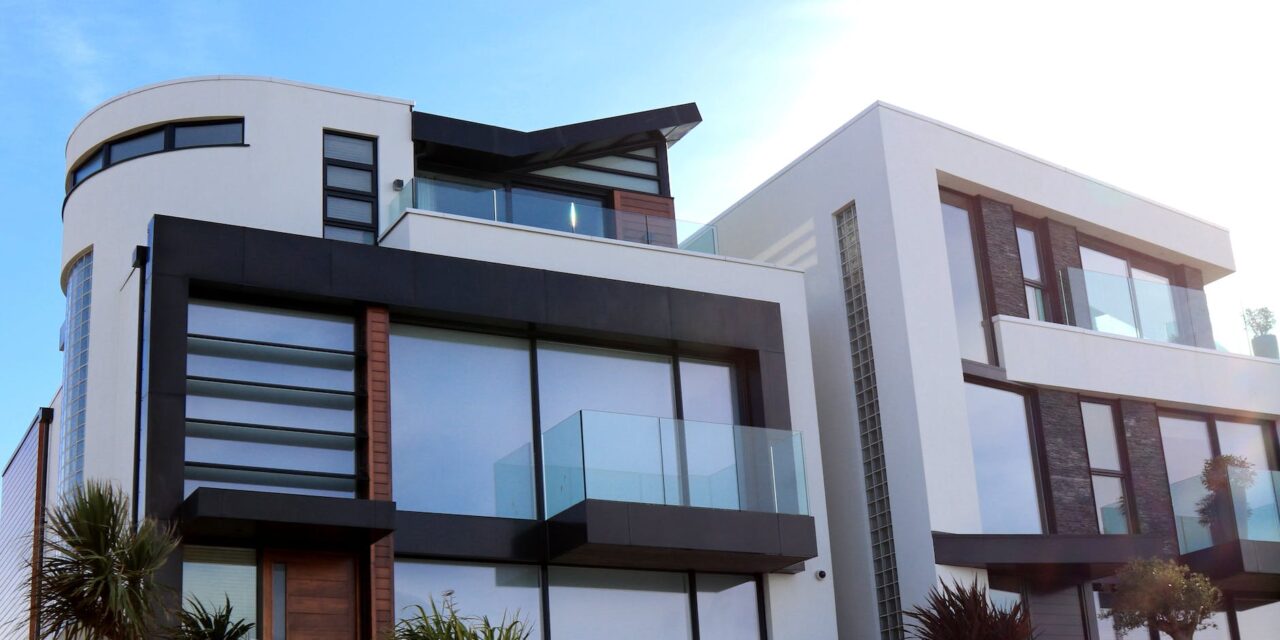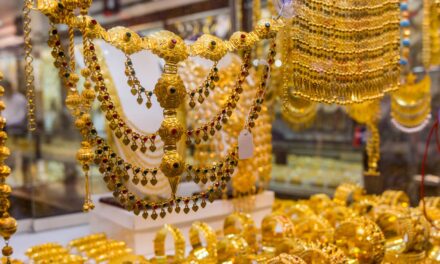Dubai’s real estate market has been booming for years, making it a prime location for investors looking to purchase commercial or residential properties. With a diverse range of properties available, Dubai’s real estate market has something to offer for everyone, from luxurious beachfront villas to modern office buildings in the heart of the city. In recent years, the market has experienced a surge in sales, with the first half of 2023 showing a 46.71% jump in residential property sales compared to the same period last year, reaching AED 93.18 billion in sales.
- Understanding Dubai’s Real Estate Market
- Investment Opportunities in Dubai Real Estate
- Key Areas for Real Estate Investment in Dubai
- Dubai’s Real Estate Market by Nationalities
- The Impact of Infrastructure on Dubai Real Estate
- Affordability in Dubai Real Estate Market
- Regulations and Legalities in Dubai Real Estate
- The Future of Dubai Real Estate
- Conclusion
- Frequently Asked Questions
- What are the current trends in Dubai’s real estate market?
- What are the most popular areas for real estate investment in Dubai?
- What are the legal requirements for buying property in Dubai?
- How has the pandemic affected Dubai’s real estate market?
- What are the potential risks and benefits of investing in Dubai real estate?
- How can foreign investors navigate the Dubai real estate market?
Dubai’s real estate market has been a hot topic in recent years, with many investors flocking to the city to take advantage of the opportunities available. The city’s strategic location, excellent infrastructure, and favorable business environment make it an attractive destination for both local and international investors. The real estate market has been a key contributor to the city’s economic growth, and the government has been actively promoting the sector to encourage further investment.
Overall, Dubai’s real estate market is a dynamic and exciting sector that offers many opportunities for investors. With the market showing no signs of slowing down, many experts predict that the momentum will continue throughout 2023 and beyond. Whether you’re looking to invest in residential or commercial properties, Dubai’s real estate market is definitely worth considering.
Understanding Dubai’s Real Estate Market

Market Overview
Dubai’s real estate market has been booming for the past few years, offering many investment opportunities in both residential and commercial properties. The market is known for its unique and dynamic nature, characterized by constantly changing regulations, trends, and pricing.
According to a Bloomberg report, Dubai’s average home prices climbed 4.4% in the year to August 2021. Average apartment prices rose 2.5%, while single-family homes, known locally as villas, soared 17.9%. The report also highlights that the rental rates for single-family homes have increased by 10% over the same period.
Price Trends
Dubai’s real estate market has seen a decline in property prices over the past few years, but lower prices may be a good time for investors looking to buy. Hussain Sajwani, the chairman of Damac, a leading real estate developer in Dubai, stated that the market has made a “hard landing,” but it is now a buyer’s market, making it a great time for investors to buy.
According to a CNBC report, the property market in Dubai is expected to remain weak for the next two years. However, this could be a good time for buyers to invest in the market, as prices are expected to remain stable or even decrease further.
In conclusion, Dubai’s real estate market offers many investment opportunities in both residential and commercial properties. The market is dynamic and constantly changing, so conducting thorough research and keeping up with the latest trends and regulations is essential for investors. While prices have declined over the past few years, it may be a good time for buyers to invest in the market, as prices are expected to remain stable or even decrease further.
Investment Opportunities in Dubai Real Estate
Dubai’s real estate market is known for its stability and growth, making it an attractive destination for investors looking to diversify their portfolio. The city offers a range of investment opportunities in both residential and commercial properties. In this section, we will explore some of the investment opportunities available in Dubai’s real estate market.
Residential Properties
Dubai’s residential real estate market offers a wide range of investment opportunities, from luxury villas and apartments to affordable housing options. The city’s population growth and increasing demand for housing have led to a steady increase in property prices over the years. However, the market has remained stable, making it an attractive investment option for buyers.
Investors looking to invest in the residential real estate market in Dubai can choose from a range of options, including off-plan properties, ready-to-move-in properties, and rental properties. Off-plan properties offer investors the opportunity to purchase properties at a lower price before they are completed, while ready-to-move-in properties offer immediate rental income. Rental properties, on the other hand, offer long-term rental income and capital appreciation.
Commercial Properties
Dubai’s commercial real estate market offers a range of investment opportunities for investors looking to diversify their portfolio. The city’s strategic location, world-class infrastructure, and business-friendly environment make it an attractive destination for businesses looking to expand their operations in the region.
Investors looking to invest in commercial real estate in Dubai can choose from a range of options, including office spaces, retail spaces, and industrial properties. Office spaces offer investors long-term rental income and capital appreciation, while retail spaces offer immediate rental income and the potential for capital appreciation. Industrial properties, on the other hand, offer long-term rental income and stable cash flows.
In conclusion, Dubai’s real estate market offers a range of investment opportunities for investors looking to diversify their portfolio. Whether you are looking to invest in residential or commercial properties, Dubai’s stable and growing real estate market makes it an attractive destination for buyers and sellers alike.
Key Areas for Real Estate Investment in Dubai
Dubai’s real estate market is booming, and investors have many opportunities to invest in both residential and commercial properties. Here are some key areas that are worth considering:
Palm Jumeirah
Palm Jumeirah is a man-made island that is shaped like a palm tree and is one of the most sought-after areas for real estate investment in Dubai. It offers a wide range of luxury properties, including beachside apartments, bespoke villas, resorts, and retail hubs. The area is known for its stunning views of the Dubai skyline and the Arabian Gulf, making it a popular destination for tourists and residents alike.
Dubai Hills
Dubai Hills is a master-planned community that offers a mix of residential, commercial, and leisure properties. It is located in the heart of Dubai and is one of the most sought-after areas for real estate investment. Dubai Hills offers a range of properties, including villas, townhouses, and apartments, all of which are designed to offer a luxurious and comfortable lifestyle.
Emirates Hills
Emirates Hills is a gated community that is known for its luxury villas and mansions. It is located in the heart of Dubai and offers stunning views of the surrounding landscape. Emirates Hills is one of the most exclusive areas for real estate investment in Dubai and is popular among high net worth individuals.
Jumeirah Bay
Jumeirah Bay is a mixed-use development that is located on the waterfront of Dubai’s Jumeirah district. It offers a range of residential and commercial properties, including apartments, villas, and office spaces. Jumeirah Bay is known for its stunning views of the Arabian Gulf and the Dubai skyline, making it a popular destination for residents and tourists.
Hadeeq Sheikh Mohammed bin Rashid Part 2
Hadeeq Sheikh Mohammed bin Rashid Part 2 is a residential community that is located in the heart of Dubai. It offers a range of properties, including villas and townhouses, all of which are designed to offer a luxurious and comfortable lifestyle. The community is known for its stunning landscaping and green spaces, making it a popular destination for families and nature lovers.
In conclusion, Dubai’s real estate market offers many investment opportunities, and these key areas are worth considering for those looking to invest in the city’s booming real estate market.
Dubai’s Real Estate Market by Nationalities
Dubai’s real estate market is a popular destination for foreign investors. According to Gulf Today, the Dubai property market recorded the best ever quarter since 2010, with a total of 20,539 sales transactions valuing a little over Dhs 55.50 billion in the first quarter of 2022. The following sub-sections discuss the nationalities that have invested in Dubai’s real estate market.
European Investors
European investors have shown a keen interest in Dubai’s real estate market. According to Cityscape Intelligence, UK nationals and Italians are among the top nationalities investing in real estate in Dubai. French buyers also represent a significant group.
Russian Investors
Russian nationals have also shown a growing interest in Dubai’s real estate market. According to Cityscape Intelligence, Russian nationals represented the fourth-largest group investing in real estate in Dubai.
Dubai’s real estate market is not only attracting investors from Europe and Russia but also from other parts of the world. It is a diverse market that offers many investment opportunities in both residential and commercial properties.
The Impact of Infrastructure on Dubai Real Estate
Dubai’s real estate market is highly influenced by the city’s infrastructure. The government’s investment in infrastructure has been a key factor in attracting foreign investment and boosting the real estate market. In this section, we will explore the impact of infrastructure on Dubai’s real estate market, with a focus on Dubai International Airport, hospitality, and retail.
Dubai International Airport
Dubai International Airport is one of the busiest airports in the world, serving over 90 million passengers in 2019. The airport’s expansion has had a significant impact on the real estate market, particularly in the surrounding areas. The development of new hotels, residential properties, and commercial spaces has been driven by the airport’s growth.
The airport’s expansion has also led to the development of new transport links, such as the Dubai Metro, which has connected the airport to other parts of the city. This has made the surrounding areas more accessible and attractive to investors, leading to an increase in property values.
Hospitality
Dubai is known for its luxury hospitality industry, with some of the world’s most iconic hotels located in the city. The government has invested heavily in the hospitality industry, with the aim of attracting more tourists to the city. This has had a significant impact on the real estate market, particularly in the luxury residential and commercial sectors.
The hospitality industry has also driven the development of new infrastructure, such as the Dubai Water Canal, which has created new waterfront properties and increased the value of existing properties in the area.
Retail
Dubai is also known for its world-class retail industry, with some of the largest malls in the world located in the city. The government has invested heavily in the retail industry, with the aim of attracting more tourists and boosting the economy.
The development of new malls and retail spaces has had a significant impact on the real estate market, particularly in the surrounding areas. The increased footfall and demand for retail space has led to an increase in property values and the development of new residential and commercial properties.
In conclusion, Dubai’s infrastructure has had a significant impact on the real estate market, attracting foreign investment and boosting property values. The development of new transport links, hospitality and retail infrastructure has made the city more accessible and attractive to investors, leading to the development of new properties and an increase in property values.
Affordability in Dubai Real Estate Market
Dubai’s real estate market offers a range of properties, from affordable apartments to luxurious villas. The affordability of the market is determined by several factors, including home prices and rents.
According to a report by Reuters, Dubai’s housing market remains a buyer’s market despite a surprise price rise. On an affordability scale of 1 to 10 where 1 is extremely cheap and 10 is extremely expensive, analysts returned a median of 5. This indicates that Dubai continues to offer affordable properties for investors and homebuyers.
In terms of home prices, the Dubai Land Department reported that the total value of real estate transactions in Dubai in 2021 was AED 155 billion ($42.2 billion). Of these transactions, 33,337 were sales transactions, indicating a healthy demand for properties in the city.
Rents in Dubai vary depending on the location and type of property. According to a report by Bayut, the average rent for a studio apartment in Dubai was AED 35,000 ($9,500) per year, while a one-bedroom apartment rented for an average of AED 55,000 ($15,000) per year. For those looking for larger properties, the average rent for a three-bedroom villa was AED 165,000 ($45,000) per year.
Despite the varying prices, there are affordable options for those looking to invest in Dubai’s real estate market. For example, the Dubai South project offers affordable apartments starting at AED 280,000 ($76,000).
Overall, Dubai’s real estate market offers a range of properties at varying prices, making it an attractive destination for investors and homebuyers alike.
Regulations and Legalities in Dubai Real Estate
Dubai’s real estate market is regulated by the Dubai Land Department (DLD), which is responsible for registering and recording all real estate transactions in Dubai. The DLD seeks to achieve the objectives of Dubai Government’s strategy in the real estate sector and improve land registration procedures.
In Dubai, non-UAE nationals can own properties in designated areas known as freehold areas. These areas are designated by the government and include popular areas such as Dubai Marina, Downtown Dubai, and Palm Jumeirah. However, foreign ownership of land outside of these areas is restricted to leasehold ownership for a maximum of 99 years.
Dubai has a well-established legal framework for real estate transactions that is designed to protect the interests of all parties involved. The legal framework includes a range of laws and regulations that govern the buying, selling, and leasing of properties in Dubai.
One such law is Law No. (13) of 2008, which regulates the interim property register in the Emirate of Dubai. This law provides for the registration of properties in the interim property register until the completion of the permanent property register. Another important law is Law No. (33) of 2008, which amends Law No. (26) of 2007, regulating the relationship between landlords and tenants in the Emirate of Dubai.
Interest rates in Dubai are regulated by the UAE Central Bank, which sets the base lending rate for all banks operating in the UAE. Mortgage financing is available from a range of local and international banks, with loan-to-value ratios ranging from 50% to 85% depending on the borrower’s nationality and the property type.
Overall, Dubai’s real estate market is well-regulated and offers many investment opportunities for both residential and commercial properties. Investors should be aware of the legal framework and regulations governing the market and seek professional advice before making any investment decisions.
The Future of Dubai Real Estate
Dubai’s real estate market has been booming for years, with many investors looking to take advantage of the city’s lucrative property sector. However, the future of Dubai’s real estate market is not without its challenges.
One of the biggest challenges facing the Dubai property market is inflation. As the cost of living in the city continues to rise, so too does the cost of property. This could make it more difficult for investors to find affordable properties to invest in, which could lead to a slowdown in realty transactions.
Despite this, the residential sector of Dubai’s property market is expected to continue its upward trend. According to a report by Deloitte, the residential sector is expected to see a 5% increase in sales volume in 2023. This is due in part to the construction of new residential properties, with over 36,000 units set to come online in 2022 alone.
The commercial property sector is also expected to see growth, with a number of new developments currently in the works. The Dubai property market is particularly attractive to foreign investors, with many international companies looking to set up shop in the city.
Overall, while there are challenges facing the Dubai property market, the future looks bright for investors. With continued construction of new properties and a strong demand for both residential and commercial properties, the Dubai property market is likely to remain a lucrative investment opportunity for years to come.
Conclusion
Dubai’s booming real estate market offers numerous investment opportunities for both domestic and global investors in both residential and commercial properties. Investing in real estate in Dubai has proven to be a lucrative venture, with the Dubai Land Department reporting a total of AED 114 billion worth of real estate transactions in the first half of 2021 alone.
The housing market in Dubai is currently experiencing a surge in demand, with a total of 37,000 residential units, including 5,900 villas, delivered in 2021 and a further 36,000 residential units set to come online in 2022. This is due to a growing population and a thriving economy that has attracted new businesses to set up shop in the city, resulting in an increase in job opportunities.
Global investors have also taken note of Dubai’s real estate market, with pent-up demand from travelers and increased spending by residents leading the post-pandemic recovery of the sector. However, inflation remains a concern for consumers, and it is expected to impact sentiment, resulting in price discovery and rent increases leading into 2023.
Overall, investing in real estate in Dubai offers a promising opportunity for those looking to diversify their investment portfolio. With a growing population, a thriving economy, and a surge in demand for properties, the real estate market in Dubai is expected to continue to grow in the coming years.
Frequently Asked Questions
What are the current trends in Dubai’s real estate market?
Dubai’s real estate market has been booming in recent years. According to Bloomberg, the average home prices in Dubai climbed 4.4% in the year to August 2021. Apartments prices rose 2.5% while single-family homes, known locally as villas, soared 17.9%. The market is expected to continue growing in the coming years, with 36,000 residential units set to come online in 2022 alone, according to Khaleej Times.
What are the most popular areas for real estate investment in Dubai?
Some of the most popular areas for real estate investment in Dubai include Downtown Dubai, Dubai Marina, Palm Jumeirah, and Jumeirah Beach Residence. These areas offer a mix of residential and commercial properties, and are known for their luxurious amenities and prime locations.
What are the legal requirements for buying property in Dubai?
Foreigners can buy property in Dubai, but there are certain legal requirements that must be met. Non-GCC residents must obtain a residency visa, which can be obtained through property ownership. Additionally, all property transactions must be registered with the Dubai Land Department.
How has the pandemic affected Dubai’s real estate market?
While the COVID-19 pandemic initially slowed down Dubai’s real estate market, it has since bounced back and is now thriving. In fact, the pandemic has led to changes in buyer preferences, with a growing demand for larger homes and outdoor spaces.
What are the potential risks and benefits of investing in Dubai real estate?
Investing in Dubai real estate can offer high returns, especially in popular areas like Downtown Dubai and Dubai Marina. However, like any investment, there are also potential risks, such as market fluctuations and changes in government regulations.
How can foreign investors navigate the Dubai real estate market?
Foreign investors looking to invest in Dubai real estate should work with a reputable real estate agent who is familiar with the local market. They should also be aware of legal requirements and regulations, and ensure that all transactions are properly registered with the Dubai Land Department.

























